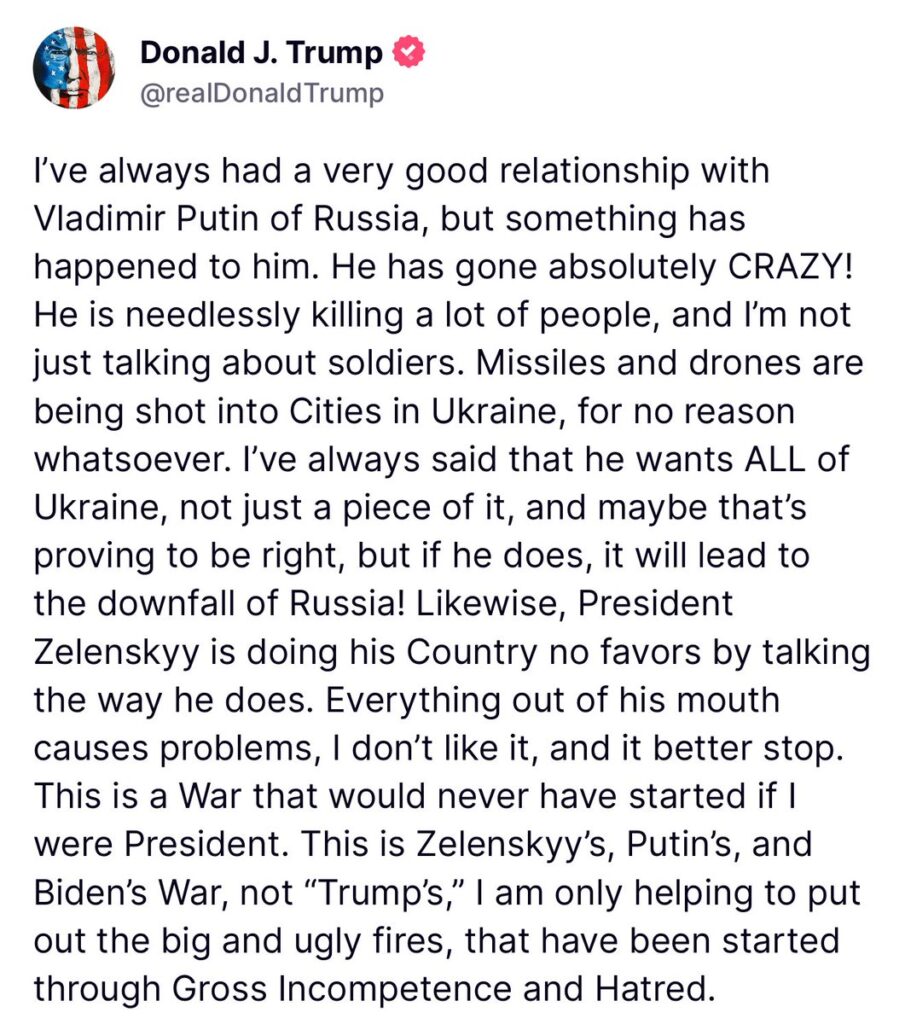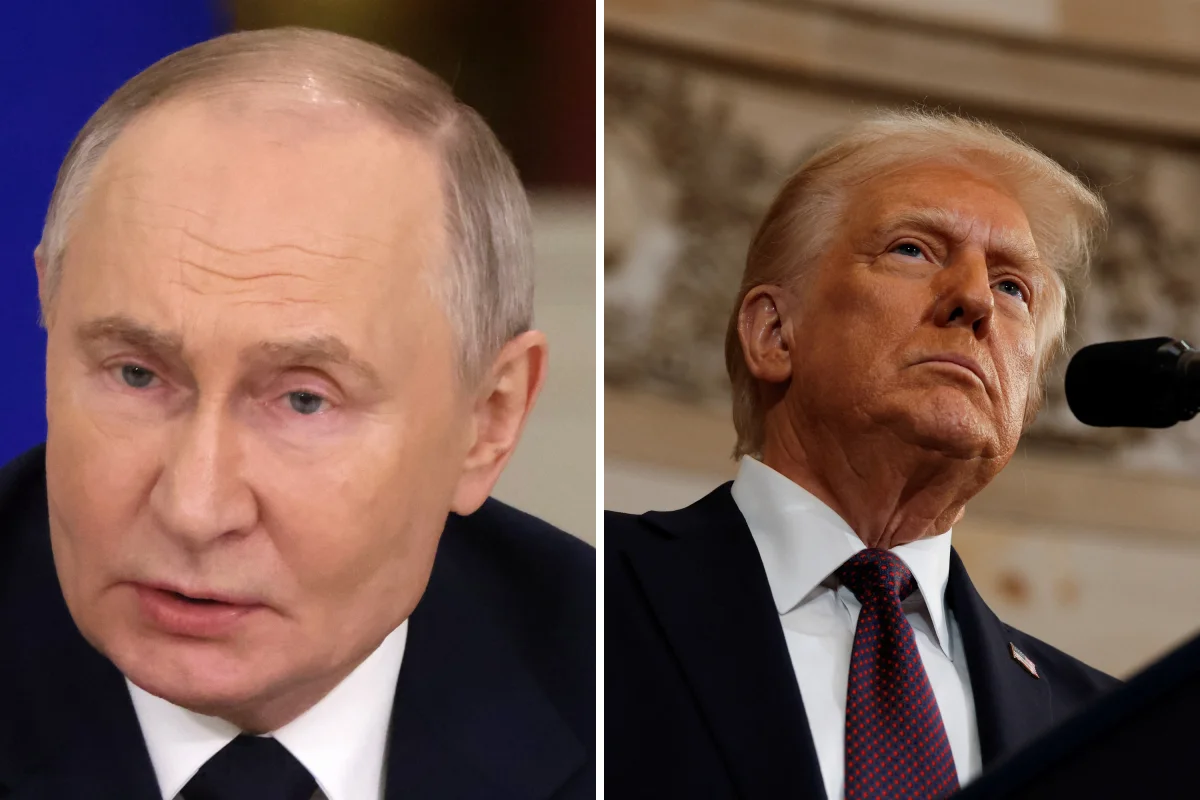US President Donald Trump has recently changed his tone toward Russian President Vladimir Putin, calling him “crazy” amid escalating tensions in the Ukraine conflict. This sudden shift has left global leaders uncertain about Trump’s true intentions and the future of peace efforts.
Since returning to office in January, Trump promised to end the war in Ukraine “in 24 hours,” but his past comments often praised Putin. However, recent frustrations with stalled negotiations between Russia and Ukraine appear to have influenced Trump’s harsher language.

On his Truth Social platform, Trump warned that Putin’s desire to control all of Ukraine “will lead to the downfall of Russia.” He described Putin as having “gone absolutely crazy,” marking a significant change from his usual supportive tone.
Despite these harsh words, Kremlin officials dismissed Trump’s remarks as emotional reactions during a sensitive time. Russia responded with its largest drone attack on Ukraine since 2022, intensifying the conflict.
European leaders, including French President Emmanuel Macron, welcomed Trump’s tougher stance, urging stronger sanctions on Russia to pressure Moscow into peace. Macron emphasized that US credibility is at stake if America does not take decisive action.
However, Trump continues to criticize Ukrainian President Volodymyr Zelensky, blaming him for complicating the situation with public statements. Trump called on Zelensky to change his tone, further highlighting the complex dynamics at play.
While Trump has made bold foreign policy promises, his past record shows limited success in resolving major conflicts, such as North Korea and Iran. His meetings with North Korean leader Kim Jong Un, though unprecedented, failed to bring lasting change.
As the war in Ukraine drags on, the world watches to see if Trump’s recent comments will lead to effective peace efforts or add to the uncertainty surrounding the conflict’s resolution.




